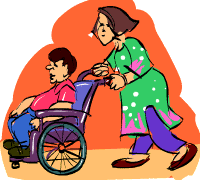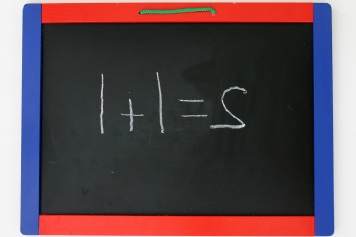
Special Education – Some Signposts [Illustration by Shiju George]
Special Education is the individually planned and systematically monitored arrangement of physical settings, teaching procedures, special equipment and materials, and other interventions designed to help learners with special needs, to achieve the greatest possible self-sufficiency and success in the school and community.
All children exhibit individual differences in terms of physical growth, intellectual capacities, behavioural characteristics and emotional maturity. But when these differences are minimal, most children can be grouped together in the regular school classroom.
However, the physical attributes and learning abilities of some children, those that are known as Exceptional Children, differ from the norm to such an extent that an individualised programme of special education is required.
Thus, special education is specially designed instruction aimed to meet the unique needs of a child with disabilities.
Who is an exceptional child?
Exceptional children are those who experience difficulties in learning as well as those whose performance is so superior that special education is necessary if they are to realise their fullest potential. Thus, the term ‘exceptional children’ refers to children with physical disabilities, learning difficulties, behaviour problems, as well as children who are intellectually gifted.
What is a disability?
The term disability refers to the reduced function or loss of a particular body part or organ; the term impairment is often used synonymously with disability. A disability limits the person’s ability to perform certain tasks (e.g. seeing, hearing, walking, etc.)
What is a handicap?
A handicap refers to the problems a person with a disability or impairment encounters when interacting with the environment. A disability may pose a handicap in one environment but not in another. For e.g. a child with an orthopedic disability would experience a handicap on the playground, but not in a classroom.
Special Education is usually applied in the following cases:
Mental retardation:
Significantly sub-average general intellectual functioning existing concurrently with deficits in adaptive behaviour and manifested during the developmental period. Mental retardation may be mild, moderate, or severe.
Learning disabilities:
A generic term that refers to a heterogenous group of disorders manifested by significant difficulties in the acquisition and use of listening, speaking, reading, writing, reasoning, or mathematical abilities.
These disorders are intrinsic to the individual and presumed to be due to central nervous system dysfunction. Even though a learning disability may occur along with other handicapping conditions or environmental influences, it is not the direct result of these conditions or influences.
Behaviour disorders:
These include severe inattention, hyperactivity, impulsiveness, conduct disorders such as aggression, lying and stealing, among others.
Communication (speech and language) disorders:
An inability to make themselves understood or make others understand ideas that are spoken to them. This includes speech and language impairments.
Hearing impairment:
A sensory deficiency that prevents a person from receiving the stimulus of sound in all or most of its forms and as a condition in which perceivable sounds have no meaning for ordinary life purposes.
Visual impairments:
Visual acuity of 20/200 or less in the better eye after the best possible correction with glasses or contact lenses, or vision restricted to a field of 20 degrees or less. Acuity of 20/200 means the eye can see clearly at 20 feet what the normal eye can see at 200 feet. There is a visual restriction of sufficient severity that it interferes with normal progress in regular education.
Severe handicaps:
Intense physical, intellectual, behavioural limitations due to which individuals tend to grow, learn and develop more slowly than any other group of children. Without intensive training, many persons with severe handicaps would be unable to perform the most basic tasks such as eating, excreting, communicating and finding shelter.
Gifted and talented:
Children who give evidence of high performance capability in intellectual and creative activities or in specific academic fields, and who require services or activities not ordinarily provided by the school in order to fully develop such capabilities.










